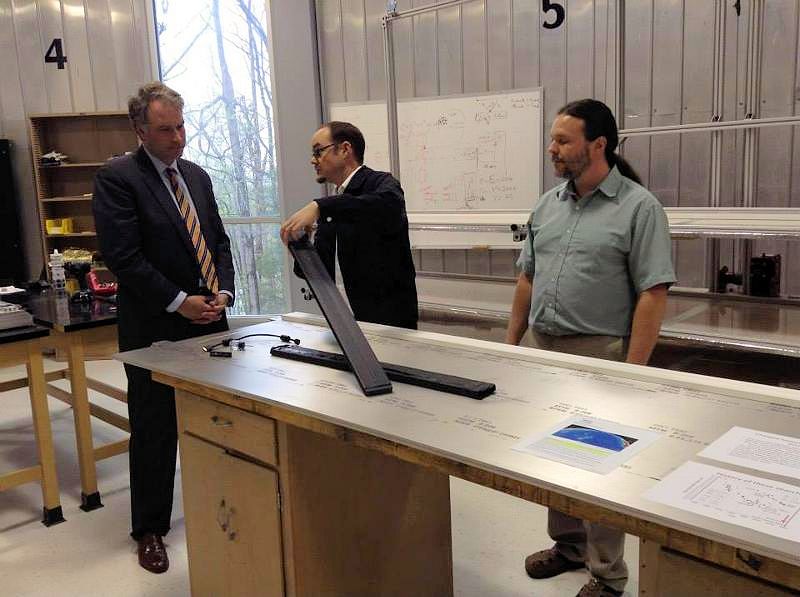
On April 24, 2014 we were fortunate to have Congressman Robert Hurt visit our laboratory on the campus of the University of Virginia, the first such visit by any elected official of any capacity. Although many of our group were at Fermilab at the time, Prof. Craig Group and technician Richard Bomgardner were able to show him around and explain the research we are engaged in.

The February 11, 2014 press release is
here.
The Fermilab Today article is
here.
Popular Science article is
here.
Symmetry magazine article is
here.
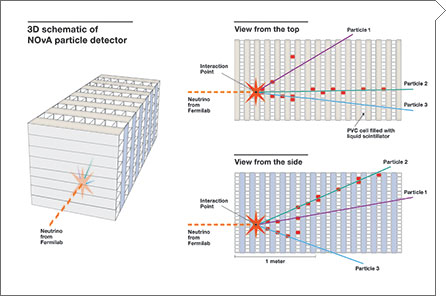
The solenoid model printed by Jason Adams and sent to Fermilab was "Photo of the Day" in the September 30, 2013 Fermilab Today.
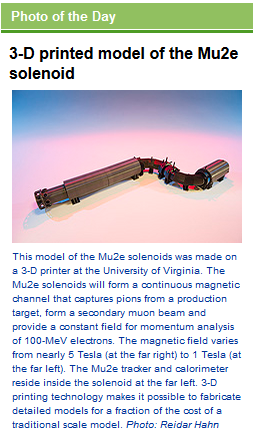
UVa NOvA group is featured in the Fall issue of the Virginia Arts
& Sciences Magazine
here.
back to top
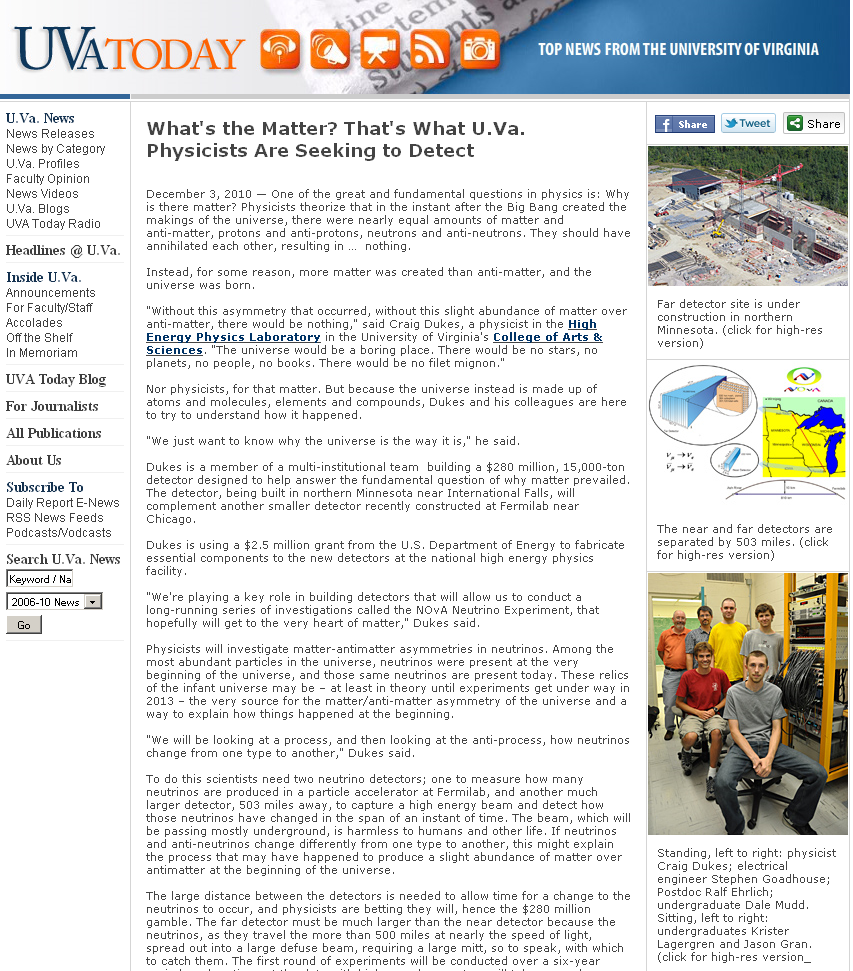
The NOvA Near Detector in its surface building (NDOS) has observed its first event: a cosmic ray muon. From the NOvA spokespersons:
It has taken a tremendous amount of work both at and away from Fermilab to get us to this point. After years of planning and preparations this experiment is about to become very real. This is a very hectic time -- there is still much work to do -- but we hope everyone can take a moment to reflect on what has been accomplished so far. Congratulations to all!!
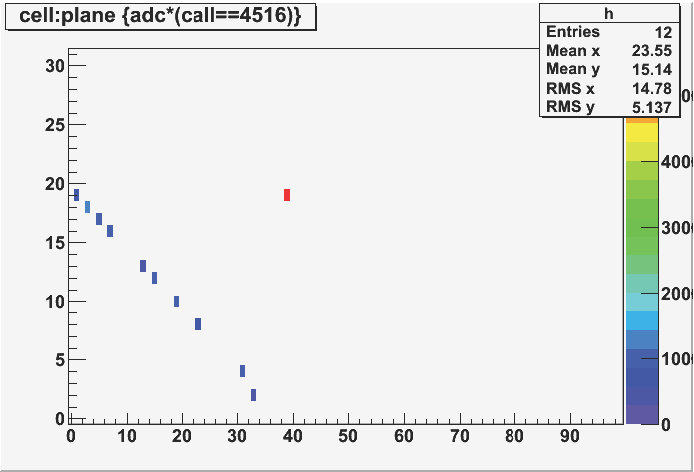
The Power Distribution System has been installed in the Integrated Prototype Near Detector (IPND). Congratualtions to all! The left figure shows the UVa group in front of the test stand designed by Stephen Goadhouse and Jason Gran. The right figure shows Jason Gran, Zukai Wang, Stephen Goadhouse, and Ralf Ehrlich in front of a relay rack containing two of the lower power supplies.
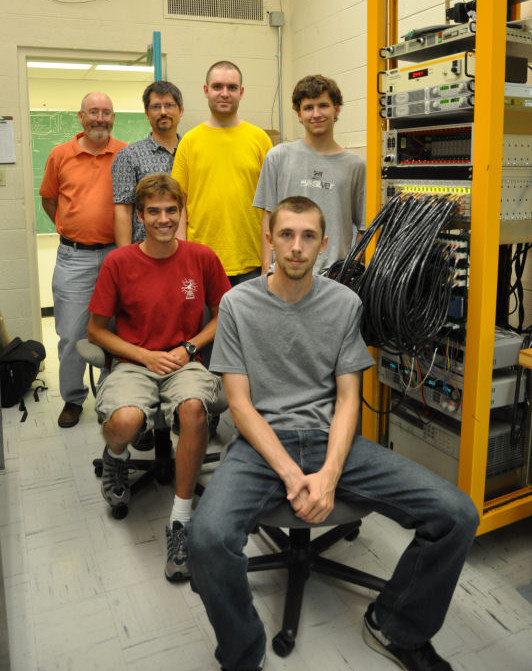
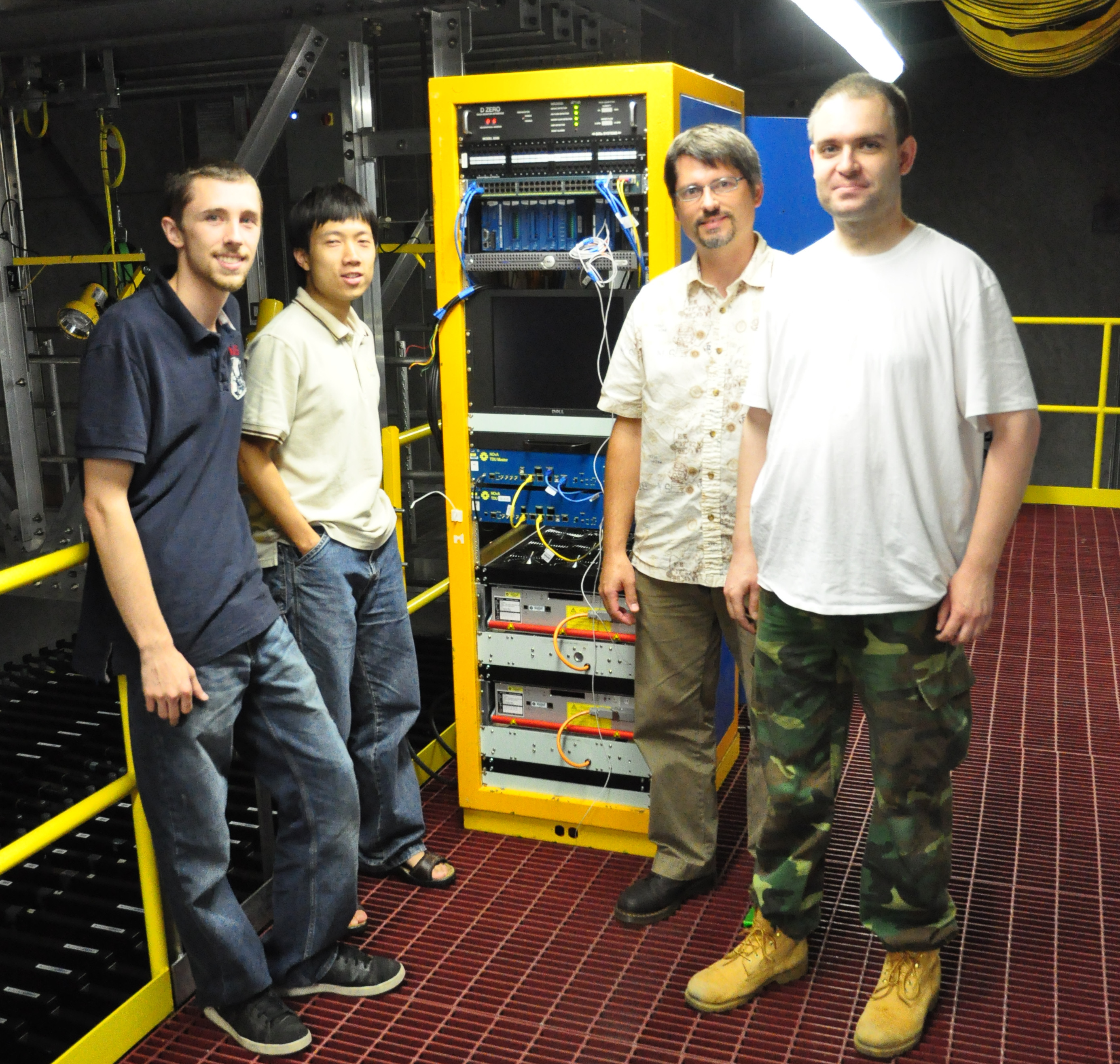
Craig Group of Fermilab and CDF is coming to Virginia as an assistant professor working in the High Energy Physics group. He will be working on both CDF (Higgs search) and Mu2e. Craig will have a joint Fermilab/Virginia position for five years. back to top
Andrew Norman was offered a position by Fermilab as an Associate Scientist
in the Computing Division, a position equivalent to a tenure track position
at a University. The competition for the job was fierce, with
excellent candidates applying from all over the country. Andrew will be
missed, but we are happy to see that his talents have been recognized with
a permanent lab position at Fermilab.
back to top
The NOvA prototype block was assembled at Argonne National Laboratory and shipped to Fermilab, where it sits in the MINOS surface building. The photo below shows the protoblock with NOvA collaborators, taken at the April 2010 collaboration meeting. Six of these are needed for the Near Detector. The Far Detector will be 4 times the height, 6 times the width, and 30 times the lenght of the protoblock.
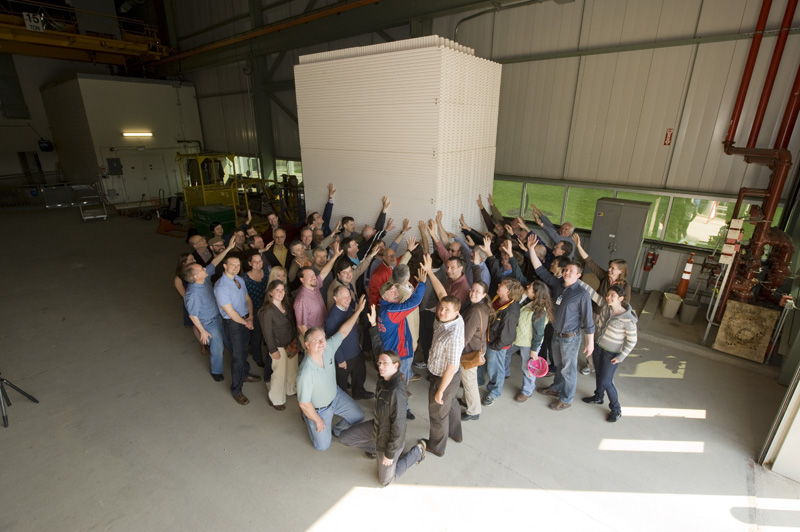
Craig Dukes has been appointed head of the Mu2e Cosmic Ray Veto system
(Leve 2 manager in DOE parlance).
Cosmic ray muons can produce background electrons that mimic
muon-to-electron conversions. Hence all such search experiments have
a cosmic ray shield, consisting of passive absorbers (iron, concrete, and
dirt) and active detectors.
back to top
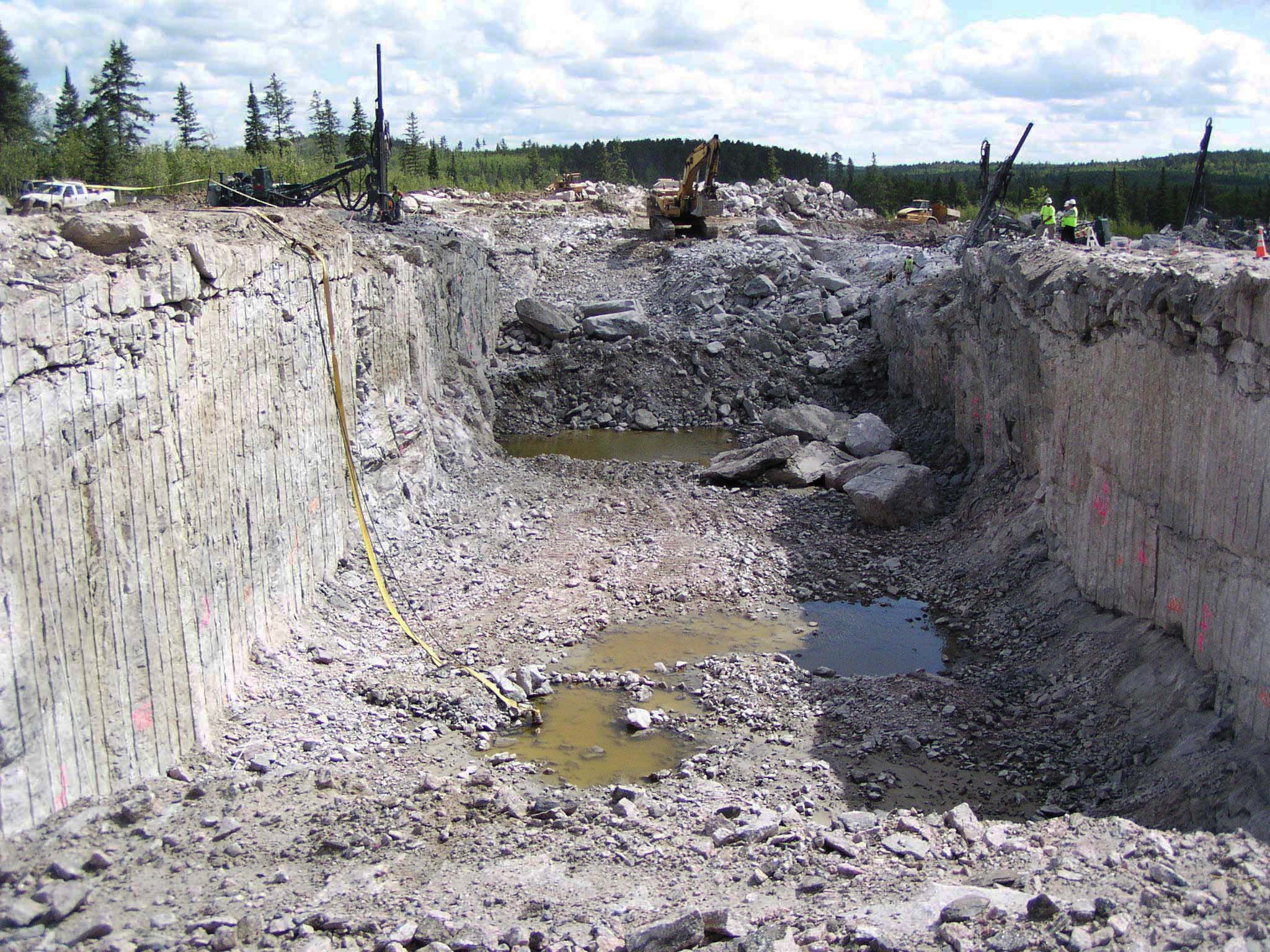
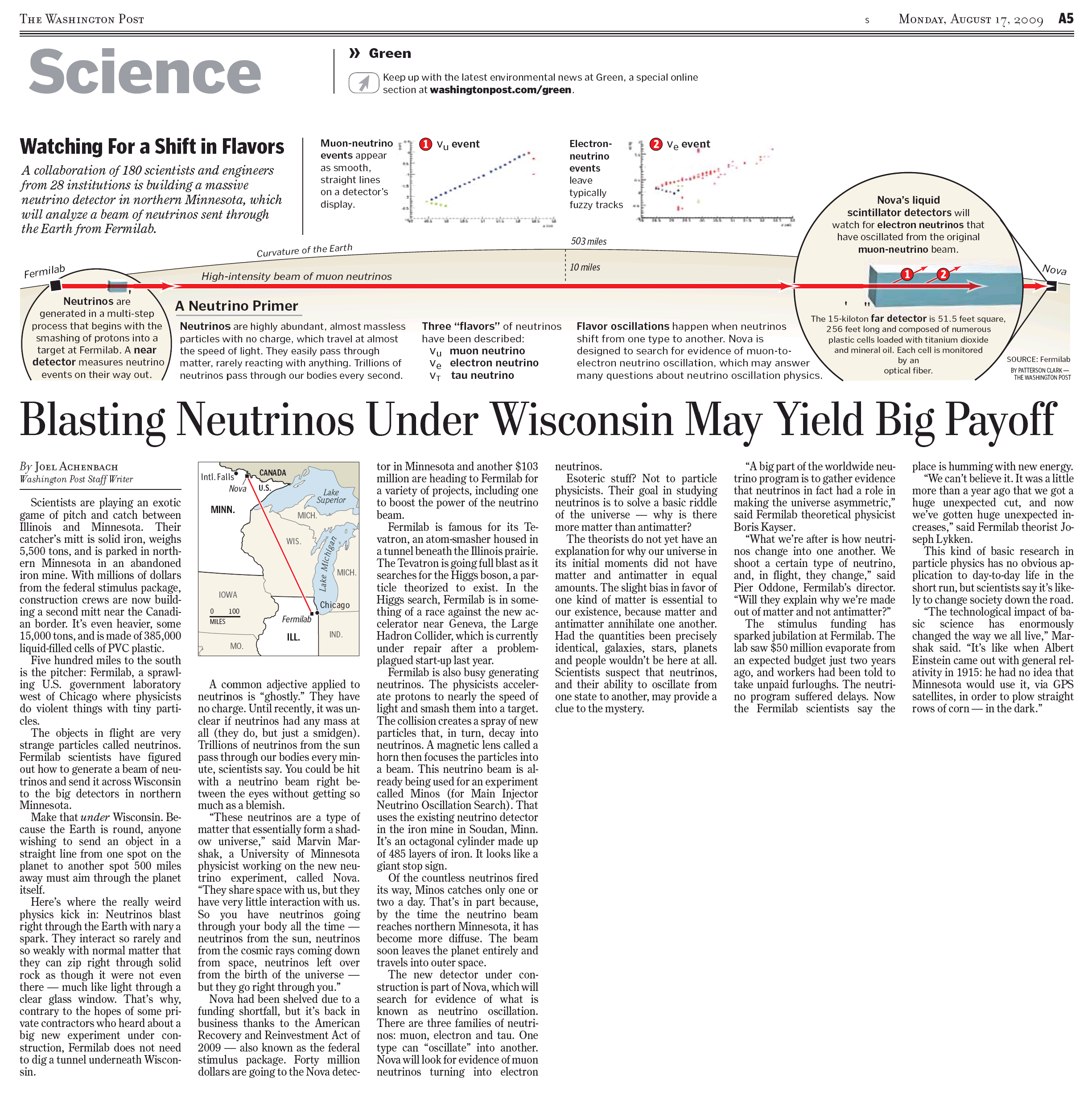
Andrew Norman gave two talks at the annual meeting of the Division of Particles and Fields (DPF) for the American Physical Society (APS): one on Mu2e and one on NOvA. You can find links to his talks below.
NOvA: .ppt .pdf
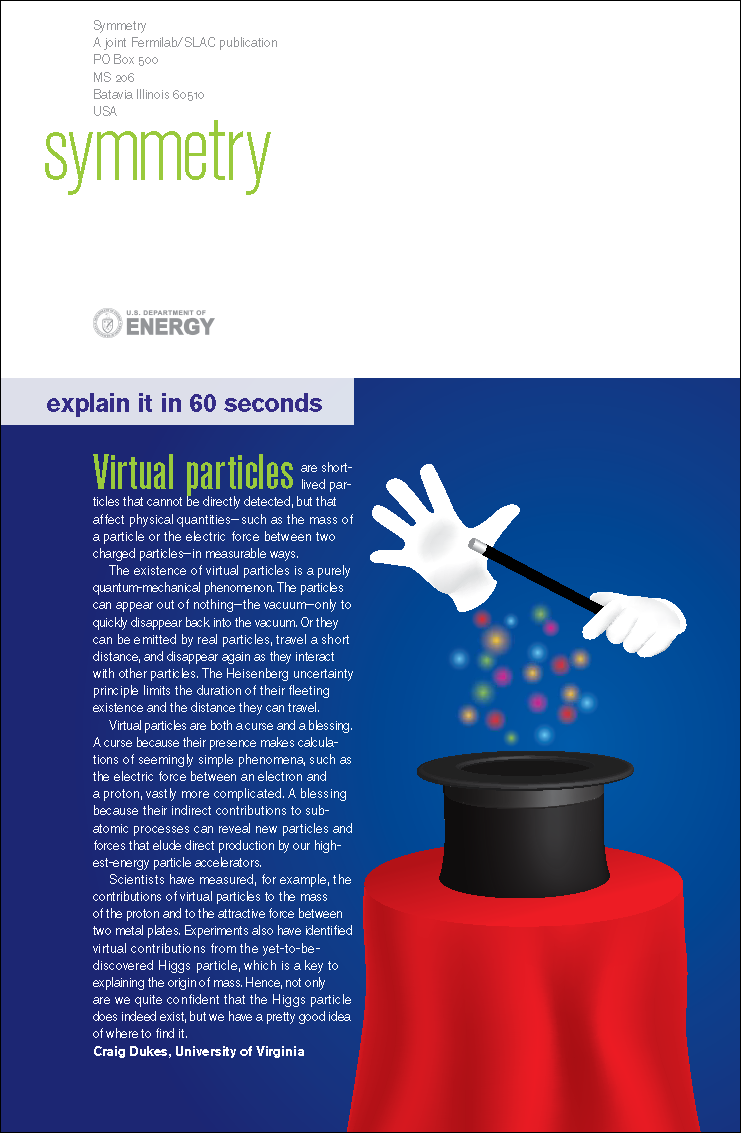
Our own Andrew Norman was selected to give the talk on Fermilab muon physics in the future program, The Mu2e and g-2 Experiments, at the Fermilab User's Meeting. You can find links to his talk below.
Fermilab User's Meeting talk: .pdf
Construction begins this month on a cutting-edge physics laboratory in northern
Minnesota, supported by the American Recovery and Reinvestment Act. Congressman
James Oberstar of Minnesota and Congressman Bill Foster of Illinois today (May 1)
are joining officials from the U.S. Department of Energy, Fermi National Accelerator
Laboratory and the University of Minnesota to break ground for NOvA, the world's
most advanced neutrino experiment.
Click
here for the Fermilab official press release.
back to top